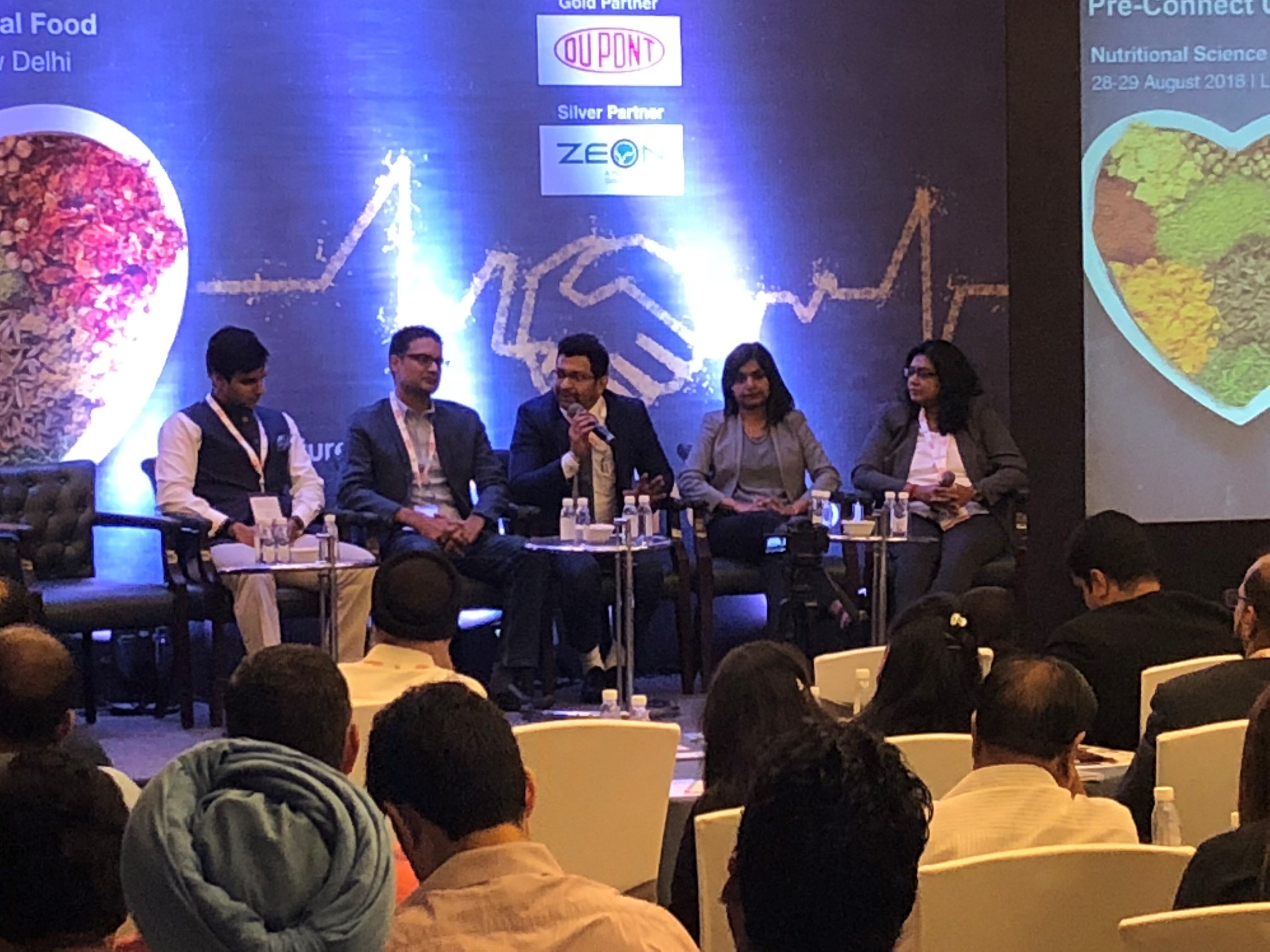The market in the country is also currently high with optimism on the back of new and evolving regulations, designed to help the industry achieve gold-class global standings.
And at this week's FI and HI India pre-connect conference in Delhi, local market experts set out their stalls for what the industry needed to do next to make further advances.
Here are five of the top recommendations:
1) Don't obsess with the new
National spokesman for the Healthcare and Food Industry Sandeep Gupta urged companies not to obsess about launching new products or finding new ingredients, unless there was clear evidence of consumer demand.
"In India, sometimes we try to do too many new things and don't always pick up on the right processes. There is a danger that we start to innovate before doing the correct market research.
"I would argue we don't always need to do something new. Instead, we can do something different,or bring a new approach to an existing product or ingredient. We must always remember we need new products to add value and have a longstanding impact that is absolutely grounded in what the consumer wants."
2) Maximise digital communications to drive early-adopters
According to the founder of HealthKart, India's largest online health and fitness store (which also has bricks-and-mortar operations) there is still plenty of work to do to educate Indian consumers about the benefits of supplements.
Founder and CEO Sameer Maheshwari said: "It will be crucial to integrate education into not only the sales process, but also the post-sales process. Customers in India need to be educated about what will work for them and what approach they need to take.
"For us, we educate consumers both in our stores and via our online portal. Digital communication in particular is helping us deliver very targeted campaigns, which help drive sales among the early adopters."
3) Don't hammer home claims
With the regulatory landscape continuing to evolve, it can be tempting to focus too much on health claims and not enough on a holistic approach to diets.
That's the view of Adiya Bagri, a director at cereal and healthfood firm Baggry's.
He said: "For a long time, the typical Indian consumer relied on pharma solutions, but today, attitudes are evolving towards prevention. The nutrition time lag in India is definitely shortening, and we think health foods will take a quantum leap forward.
"However, we don't believe the best approach is to find a health claim and hammer it home. Instead, we have to meet functional needs and provide overall holistic lifestyle solutions."
4) Sufficiency as much an opportunity as deficiency
The notion that the sector needed to consider the needs of the broad population, not those with existing health concerns, was further emphasised by GSK director Dr Vinita Satyavrat.
She argued that products needed to be tailored to different population groups — either sufficiency, insufficiency, deficiency, or disease state.
"Maybe someone is very healthy, and an early adopter, but what does he really want? He's already healthy, so he doesn't need something that is clinically validated.
:Sometimes we look for one answer for all, but those four consumer groups need different things. We need to bridge the gaps and conduct research looking at each sub-set."
5) Make innovation the heart of Indian business plans
According to DuPont's South Asia innovation leader Karuna Jayakrishna, Indian consumers expect nutrition firms to innovate and communicate that it is a key priority.
However, there needs to be proper business processes for innovation, both to identify the need and to execute it correctly.
"In India specifically, we see consumers becoming more aware of how their diet impacts health and wellness, so the reactive approach to treating disease is no longer correct.
"But we need to remember that when we are talking about functional foods in particular, Indian consumers demand good taste and also convenience, as well as the health impact."
New guidance
On the back of growing interest in the country's supplement sector, two new guides have been published to help the sector adapt to recently implemented regulatory requirements.
The documents have been produced by ReCHaN (the Resource Centre for Health Supplements and Nutraceuticals), which was established in July 2017 through a partnership between the Confederation of Indian Industry (CII) and the International Alliance of Dietary / Food Supplement Associations (IADSA). They can be downloaded at www.rechan.in.
Their publication is significant because they are seen as a key stepping stone towards ensuring consistency of practice across India's supplement industry, and will assist in the application of relevant legislation governing the sector.
The Health Supplements and Nutritionals Compliance Guidance Document addresses new regulations introduced at the beginning of 2018 to regulate the industry.
Meanwhile, The Health Supplements and Nutraceuticals Guidance Document on Good Manufacturing Practices explains procedures for ensuring high standards of safety, hygiene, quality and traceability, among others.





